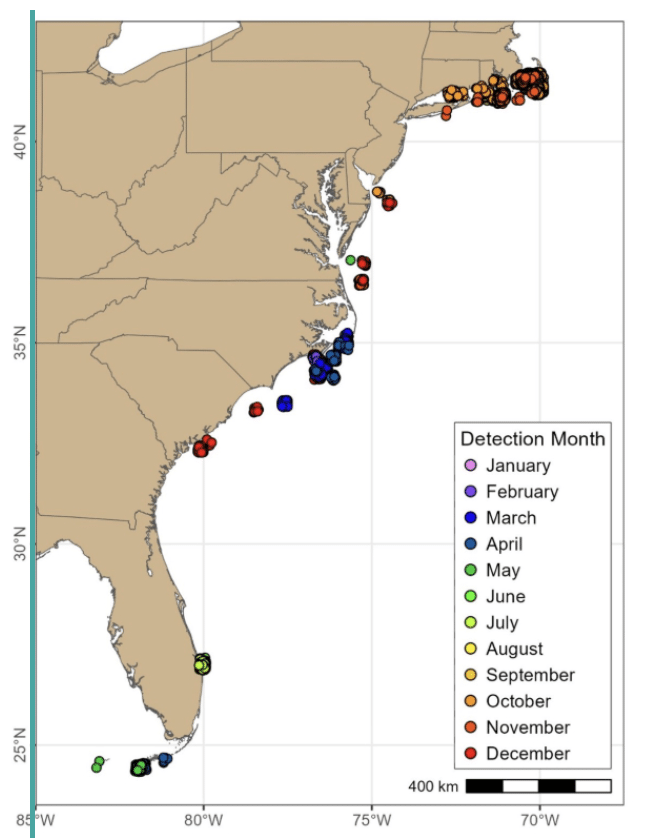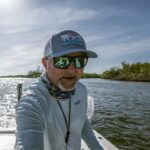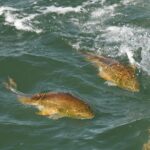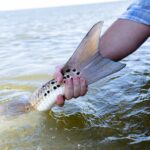
Gulf Menhaden Reduction Fishery: Bycatch Research & Useless Buffer Zones
Do you remember your driver’s test? How nervous were you when the instructor pulled out
While the ASGA team is extremely proud of the community we’re building with the Guide Post Podcast, we would be remiss not to show love to other industry-leading podcasts that we respect and draw inspiration from. The MillHouse Podcast sits at the top tier of that list. Andy Mill, a household name in the tarpon and fly angling community, and his son Nicky Mill have built “more than just a fishing podcast” focused on “in-depth conversations with innovators, legends and pioneers of the game.” To say they have a long list of notable guests would be an understatement, with the likes of Bob Clouser, Flip Pallot, Steve Huff, Bouncer Smith, Doug Kilpatrick, Paul Dixon, Billy Knowles, Mike Holliday and more. The father-son duo have undoubtedly built an “audio format Hall of Fame” for the angling industry.
Their latest episode launched this morning with the insanely accomplished Butch Constable, a long-tenured staple of the Jupiter, Florida angling community. While sharing many great fish tales from times of legendary abundance and low pressure, Butch took a moment to call out “the fishery that he’s most worried about right now” (timestamp 48:32):
“Bonita, false albacore, whatever you call ‘em… There’s a big commercial fishery for them and it’s having a serious impact on them. This is going to have to be addressed. We can’t have that many bonitas taken out [of the fishery]. The boats are taking a couple thousands pounds a day. You get 10 boats like that, that’s 20,000lbs a day […] I’ve seen a major difference the last few years. The bonita schools are not there like they used to be. Unfortunately, anything that brings a priced is going to be exposed [to overharvest].
–Captain Butch Constable, EP110 of the Millhouse Podcast
Conversations like these are not only critical for paying respect to the early innovators but also for record-keeping regarding fisheries health to fight back against shifting baselines. Florida anglers have a wealth of marine diversity at their disposal, which pushes species that are otherwise appreciated around the country to slide down the priority ladder for anglers. While this may be understandable when it comes to any given day on the water in Florida, the conservation community as a whole remains adamant about sustainable futures at scale and recognizing stock connectivity. Migratory species like striped bass, tarpon, and false albacore (as The Albie Project has now documented in our collaborative telemetry studies) do not recognize state boundaries. It’s incredible to hear such a well-respected captain who has made a living in one of the most biodiversity locations on the East Coast call for more respect and value to be put on the “bonita” (as they’re referred to locally), recognizing their value as a gamefish target for guides and anglers, as well as their role in dynamic offshore food webs. We’ve heard a growing concern from other well respected guides on the Treasure Coast, including industry stalwart and multi-decade guide Mike Holliday out of Stuart. Remember, the latest data downloads from The Albie Project found a major cohort of our tagged tunnys spent a majority of their summer swimming the coastal waters of Southeast Florida (see the summer activity documented by green detection pins below).

These conversations and new innovative science are gaining steam and sparking critical conversations about the value and management of an under appreciated migratory species connected from Massachusetts to the Florida Keys. You can listen to the full episode, “EP110: Capt. Butch Constable – Jupiter’s Finest” on all major podcast platforms – Spotify & Apple Podcasts.

Do you remember your driver’s test? How nervous were you when the instructor pulled out

If you’ve spent any time on the water in South Florida, chances are you’ve heard

Photo Credit: Graham Tayloe Big Win for Redfish in Alabama Huge news from the Marine

Feature Photo: Carter Abramson | Simms Fishing at the Fisheries Science Symposium We have more
We rely on our members and donations to keep fighting for a sustainable tomorrow in marine conservation.
GIVE THE GIFT OF FISHERIES CONSERVATION THIS HOLIDAY SEASON. SHOP ASGA GOODS THAT FUND FISHERIES RESEARCH & ADVOCACY CAMPAIGNS
JOIN ASGA IN CALLING FOR CRITICAL MANAGEMENT ACTION AFTER YEARS OF SPAWN FAILURES & POOR MANAGEMENT.
By using this website, you agree to our use of cookies. We use cookies to provide you with a great experience and to help our website run effectively. To learn more, please review our privacy policy.